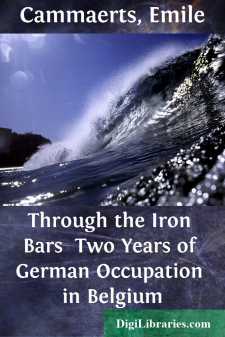History
- Africa 30
- Americas (North Central South West Indies) 50
- Ancient 68
- Asia 58
- Australia & New Zealand 8
- Canada 41
- Caribbean & West Indies 1
- Civilization 20
- Eastern Europe 12
- Europe 310
- Expeditions & Discoveries 60
- General 77
- Historical Geography 1
- Jewish 9
- Latin America 3
- Medieval 8
- Middle East 14
- Military
- Revolutionary 8
- Study & Teaching 5
- United States 353
- Western Europe 56
- World 13
Military Books
Sort by:
CHAPTER I INTRODUCTORY The following pages are intended to give an account of personal experience of the gunshot wounds observed during the South African campaign in 1899 and 1900. For this reason few cases are quoted beyond those coming under my own immediate observation, and in the few instances where others are made use of the source of quotation is indicated. It will be noted that my experience was...
more...
PREFACE The late convulsions in Greece and Turkey, and the consequent revival of all the mis-statements which, during the War, flowed from ignorance or malice, render the publication of this book particularly opportune. Mr. Abbott deals with his subject in all its aspects, and presents for the first time to the British public a complete and coherent view of the complicated circumstances that made...
more...
CHAPTER I Within the brief period of three years following the outbreak of the great war in Europe, more than four hundred thousand negroes suddenly moved north. In extent this movement is without parallel in American history, for it swept on thousands of the blacks from remote regions of the South, depopulated entire communities, drew upon the negro inhabitants of practically every city of the South,...
more...
by:
George Davidson
DIARY. March 16th, 1915.—After serving for five months as a lieutenant in what was at first known as the 1st Highland Field Ambulance, and afterwards, as the 89th Field Ambulance, I left Coventry, our last station, to do my little bit in the great European War, our destination being unknown. We had heard well-founded rumours that we were going to the Dardanelles, or somewhere in the Levant, and our...
more...
THE "ACTING SUB" He was a very junior young officer indeed when the powers that be first gladdened his heart and ruined his clothes by sending him to a destroyer. A mere sub-lieutenant with "(acting)" after his name, which, as any proper "sub" will tell you, is a sign of extreme juniority. Moreover, the single gold stripe on his monkey jacket was still suspiciously new and...
more...
by:
Emile Cammaerts
I.THE PRISON GATES.The English-speaking public is generally well informed concerning the part played in the war by the Belgian troops. The resistance of our small field army at Liège, before Antwerp, and on the Yser has been praised and is still being praised wherever the tale runs. This is easy enough to understand. The fact that those 100,000 men should have been able to hold so long in check the...
more...
by:
Trumbull White
Information concerning the island of Cuba has been of an exceedingly unsatisfactory character until the search-light of American inquiry was thrown upon it from the beginning of the war for Cuban liberty early in 1895. Although our next-door neighbor to the south, with a perfect winter climate and a host of interesting and picturesque attractions for travelers, tourists had been comparatively few,...
more...
by:
Various
Caldron of the Balkans But little has hitherto been published in English describing from original sources how the Balkan States, out of which the world conflict arose, resolved, in Kipling's phrase, to "stand up and meet the war." The following documents, taken from authoritative Balkan sources, show for the first time the purely Balkan aspect of the great struggle. How Turkey Went to War...
more...
THE FIGHT OFF CAPE ST. VINCENT THE SCEPTRE OF THE SEA. "Old England's sons are English yet,Old England's hearts are strong;And still she wears her coronetAflame with sword and song.As in their pride our fathers died,If need be, so die we;So wield we still, gainsay who will,The sceptre of the sea. We've Raleighs still for Raleigh's part,We've Nelsons yet unknown;The pulses...
more...
CHAPTER I ARRESTED AS A SPY "Start August First. Book tickets immediately." Such were the instructions I received at Brighton early in July, 1914, from Prince ——. A few days previously I had spent considerable time with this scion of the Russian nobility discussing the final arrangements concerning my departure to his palace in Russia, where I was to devote two months to a special matter in...
more...











